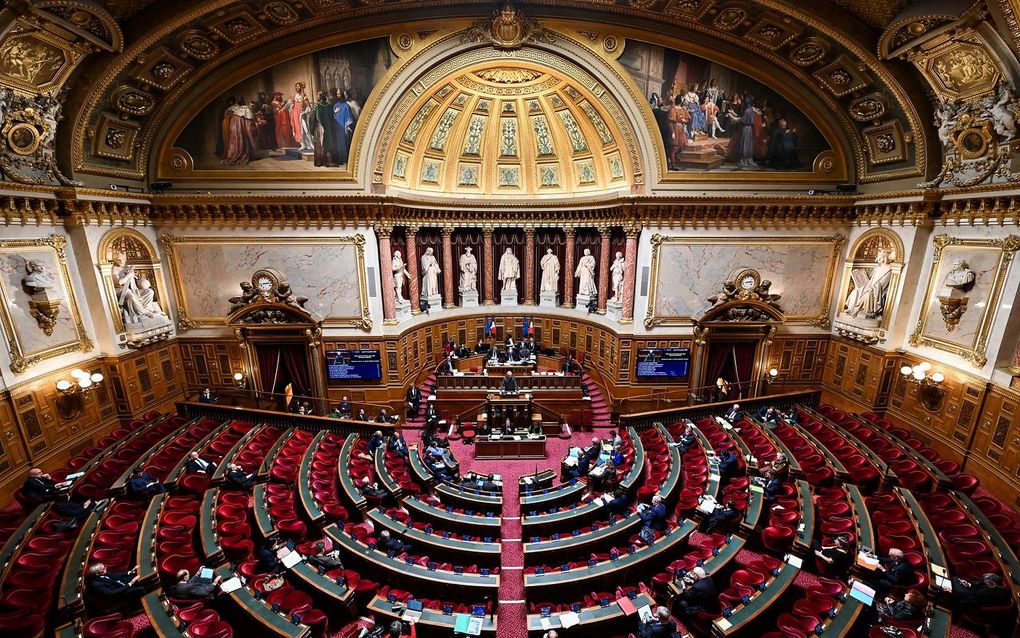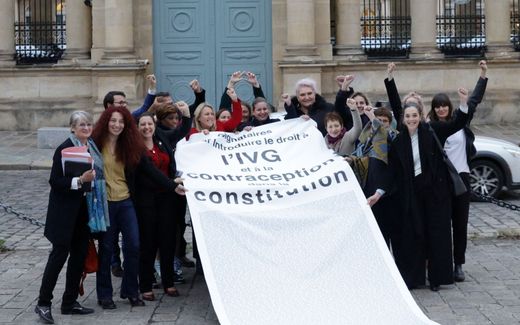French Senate votes about enshrining abortion in Constitution
01-02-2023
Western Europe
Mark Wallet, RD

The French Senate building, in Paris. Photo AFP, Bertrand Guay
Western Europe
On Wednesday, the French Senate will discuss a proposal to enshrine the right to abortion in the constitution for the second time in four months. The big question is how deputies from the centre-right party Les Républicains will vote.
Currently, no country in the world has the right to abortion constitutionally enshrined. Implicitly, Slovenia has something as such. However, since the US Supreme Court overturned the Roe vs Wade ruling in June last year, thus drawing a line under the federal right to voluntary termination of pregnancy, the debate on it has been in full swing in several countries.
The fear in France and elsewhere is that such a revision of rights will sooner or later be emulated. That there are people in France who would like to see this happen is clear – although polls suggest they are a limited minority. On Sunday, 22 January, several thousand people marched in Paris in the annual March for Life. Police counted 6,300 participants; organisers spoke of 20,000.
Procession
It was enough for concern among part of French politics. “This is why the right to abortion should be enshrined in the constitution,” wrote Green senator Mélanie Vogel on a piece of cardboard as she lined up in front of the procession of pro-lifers marching through the streets of the French capital.
Left-wing politician Mathilde Panot, initiator of the latest bill to enshrine abortion in the constitution, put her cards clearly on the table in the House of Representatives in November. "We do not want to leave any room for people who are hostile to voluntary termination of pregnancy and contraception," she said.
She spoke her words in a victory speech: the House had just embraced her bill by an overwhelming majority of 337 votes to 32 and 18 abstentions. But now it is the Senate's turn, and the vote there is much more exciting. The French Upper House, where the right has a majority, rejected a similar proposal to make abortion constitutional as recently as October (by 172 votes to 139).
Sealed fate
In line with this, the law committee in the Senate rejected the new bill again last week. The committee's job is to scrutinise and, where necessary, fine-tune legislative texts forwarded by the House of Representatives before they proceed to the full Senate. According to a majority of the committee, the bill was legally rambling and unbalanced. With this, the bill's fate seemed to be sealed once again.
However, a few days after the committee decision, centre-right MEP Philippe Bas (Les Républicains) came up with an amendment proposal that may make the proposal acceptable to some of his party colleagues. He reworded the text so that there remains room for the legislator to change the conditions for an abortion if desired. Indeed, a significant criticism from critical MPs was that Panot's bill would make the right to abortion absolute and unconditional. This would have addressed that criticism.
Massive
For senators on both the left and the right, the question is whether they can live with this compromise proposal. What is essential in this context is that most centre-right politicians do not so much want to tinker with the existing abortion practice. However, they find constitutional enshrinement unnecessary or legislative proposals to that effect too massive. Bas belonged to the latter group. The question is how many kindred spirits he has.
If the Senate accepts the bill, the French people will still have to vote on it in a referendum. In France, when a constitutional amendment proposal does not come from a ruling party, it is the required final stretch of the route. To avoid this, proposers of the various bills urged the government to adopt and submit the proposal, but it did not do so.
Yugoslavia
The former Yugoslavia is the only country ever to include the right to abortion up to 10 weeks of pregnancy in its constitution. Chileans rejected a draft constitution that included the right to abortion in a referendum last September.
This article was translated by CNE.news and published by the Dutch daily Reformatorisch Dagblad on February 1, 2023
Related Articles





